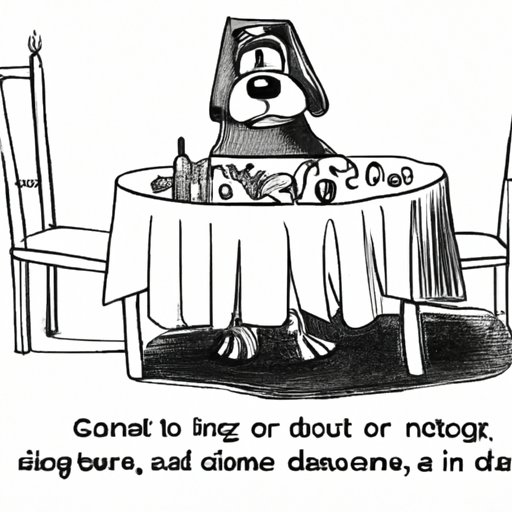As a caregiver, your role is not just to provide love and companionship to your furry friend, but also to ensure their health and safety. A crucial part of this responsibility is knowing what foods your dog can and cannot consume. This guide is designed to help you understand the risks associated with certain foods and to answer some of the most common questions you might have.
1. Foods That Are Toxic to Dogs
You may be surprised to learn just how many everyday foods can be harmful, or even lethal, to dogs:
- Chocolate: Contains theobromine, which dogs cannot metabolize.
- Onions and Garlic: These can cause anemia in dogs.
- Grapes and Raisins: The exact toxin is unknown, but these can cause kidney failure.
- Alcohol and Caffeine: These stimulate the nervous system and can lead to seizures.
2. The Dangers of Bones and Raw Meat
Despite the popular image of a dog gnawing happily on a bone, both bones and raw meat can be very harmful to your pet:
- Bones: Can splinter and cause injury to the mouth, throat, or intestines.
- Raw Meat: Can contain harmful bacteria like E. coli or Salmonella.
3. The Importance of Proper Portion Sizes
Even safe foods can become dangerous if a dog consumes too much of them. Overeating can lead to obesity, diabetes, and other health problems.
4. Human Foods That Are Safe for Dogs
There are many human foods that dogs can enjoy safely in moderation:
- Lean Meats: Cooked and unseasoned, these can be a great source of protein.
- Certain Fruits and Vegetables: Such as apples, bananas, and carrots.
- Rice and Pasta: These can be a good source of energy, but should be served cooked and unseasoned.
5. Special Considerations for Puppies
Puppies have different dietary needs than adult dogs. Their growing bodies require more protein and certain nutrients, like calcium, but they are also more sensitive to certain foods.
6. The Benefits of Commercial Dog Foods
Commercial dog foods are designed to provide a balanced diet, meeting all of a dog’s nutritional needs. They are also tested for safety and are less likely to contain harmful ingredients or toxins.
7. The Risks of Homemade Dog Foods
While homemade dog foods can be a good way to control the quality of your dog’s diet, they also carry risks. It can be difficult to achieve a balanced diet, and some foods may contain hidden dangers.
8. Consulting with Your Vet
Always consult with your vet before making any major changes to your dog’s diet. They can provide guidance based on your dog’s age, breed, size, and health condition.
Frequently Asked Questions
1. Is it safe to feed my dog a vegetarian or vegan diet?
It can be done, but it requires careful planning to ensure all nutritional needs are met. Consult with your vet.
2. My dog ate something harmful. What should I do?
Contact your vet immediately. They may instruct you to induce vomiting or bring your dog in for treatment.
3. Can I give my dog vitamins or supplements?
Some dogs may benefit from certain supplements, but others can be harmful. Always consult your vet before starting any new supplement regimen.
4. What about treats?
Treats can be a good way to reward your dog, but they should not make up more than 10% of your dog’s daily caloric intake. Choose treats designed for dogs and avoid any with harmful ingredients.
5. Can my dog have any dairy products?
Some dogs can tolerate dairy, but many are lactose intolerant. Small amounts of plain yogurt or cheese may be okay, but avoid giving your dog milk.
Remember, as a caregiver, your role is to ensure the safety and well-being of your pet. When it comes to feeding your dog, it’s always better to err on the side of caution. If you’re unsure, consult with your vet.



